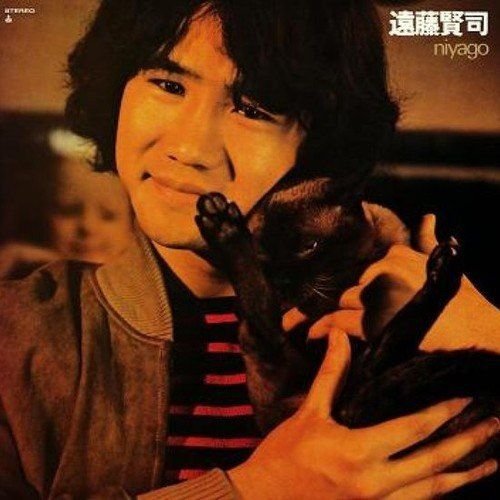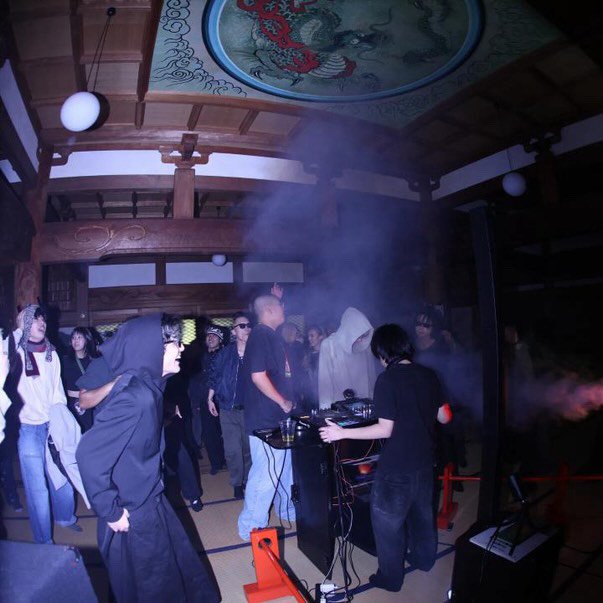Kenji Endo - A Musical Legacy of Curry Rice
© Kenji Endo
A cat lover, an actor, a performer, a musician. Kenji Endo can be called many things, but first and foremost he was an outstanding songwriter. In what way did Bob Dylan influence his path in life, and how did a song about curry rice become his most noteworthy contribution to music history?
Who is Kenji Endo
For those unfamiliar with the name Kenji Endo, not to worry, there's no need to question your musical knowledge just yet. Let us loop you in. Born in 1947, the late Japanese songwriter Kenji Endo, nicknamed Enken (エンケン), stumbled upon his passion for music during his college years when he first heard Bob Dylan's iconic "Like a Rolling Stone." Intrigued by Dylan's unique vocal style and unconventional songwriting, Endo was inspired to pick up a guitar for the first time in his life and embark on a musical journey, all without understanding a single word Bob Dylan was singing.
Endo quickly started making a name as a controversial songwriter and performer in the fōku scene, a Japanese musical movement inspired by the American folk music revival. In 1969 he debuted with the singles “Honto Da Yo” and “Neko Ga Nemiteru”, followed by his debut album “Nigayo” in 1970.
During the era of Japanese folk music, it was common for artists to perform anti-war social satires. However, Kenji Endo chose to take a different path, focusing instead on the intricacies of the individual’s daily life. His music delves into the emotions that lie beneath the surface, emphasizing that screaming is not the only way to express strong feelings. Endo's unique approach to songwriting sets him apart from his contemporaries, making him a legendary figure in the Japanese music scene.
In 1978 he released the album “Tokyo Wasshoi”, which showcased a fusion of rock, punk, and techno, blended together in Endo's distinctive style. Future work included collaborations with Miharu Koshi and J-pop legend Haruomi Hosono, former member of “Happy End” and co-founder of “Yellow Magic Orchestra” together with the late Ryuichi Sakamoto.
Amidst the continuous writing of new material, live performing, and charismatic guest appearances on Japanese tv programs like “waratte iitomo”, Endo found his way to the world of cinema. Though not as a composer, he made a name for himself as an actor, starring in Takafumi Nagamine's 1982 film, "Hellywood." The movie drew inspiration from Endo's album "Tokyo Wasshoi." Years later he directed, starred in, and composed the music for the movie “Enken the Immortal Man vs Nippon Budokan” in 2005, and made a guest appearance in “20th Century Boys - The Final Chapter - Our Flag” in 2009.
In 2016 Endo made his battle with cancer public. One year later he released his final work “Ken-chan's Piano Sketches”, a beautiful instrumental album exclusively recorded on piano, before passing away later in 2017.
© Kenji Endo
The facets of Curry Rice
“The cat, you and me.” That’s the remarkable first sentence of Kenji Endo’s most notable song “Curry Rice”. Endo loved cats, an obsession which forms a recurring theme throughout his songwriting and album artwork. Nezumi, one of Endo's cats in the ‘70s, found a new home when musician and friend Haruomi Hosono offered to adopt her after his landlord forbade him from keeping pets. But it is not the love for cats that puts Curry Rice on the map as a strong single. While the song initially sounds like a straightforward tribute to Japan’s beloved comfort food, a closer listen reveals a deeper significance.
Endo always distanced himself from political satire and statements. He rather explored the boundaries and hardships of everyday life. But on that day in 1970, while the smell of curry rice filled his apartment, he experienced how political hot topics and everyday life inevitably intertwine.
The lyrics describe the scene. Endo is preparing his dinner. He’s cutting the potatoes, the carrots, the onions even make him tear up a bit. His cat looks on from a distance as Endo waits for the dish to cook, settling down to watch some TV in the meantime. On the screen is a report about the public ritual su!cide or seppuku of author Yukio Mishima after barricading a military base in central Tokyo, leaving the nation in shock. “I was watching TV. Someone said he cut open his stomach, sounds painful”, Endo sings, before he returns to describing his preference of spices on his curry rice.
“Curry Rice” offers a unique perspective on two of life's essential components - hunger and death. His love and anticipation for food, a decent meal he worked hard for, is momentarily interrupted by news of political turmoil and the death of another human being, who arguably wanted to make a statement and trigger people into critical thinking. Yet, after a brief moment of reflection, he dismisses the news and returns to the simple pleasure of savoring his food. This combined with Endo’s soothing, untroubled voice describing in great detail the anticipation for his dinner, results in a piece of songwriting that engraved Endo’s name in Japanese folk history.
Kenji Endo’s work is a tribute to the small pleasures of life, curry rice in particular. You can find the original version of “Curry Rice” on the 1971 album “Manzoku dekiru kana” and “Even a tree can shed tears”, a compilation album existing of Japanese Folk & Rock between ‘69 and ‘73.












How self-taught pianist Ryo Fukui's music remains a timeless inspiration.